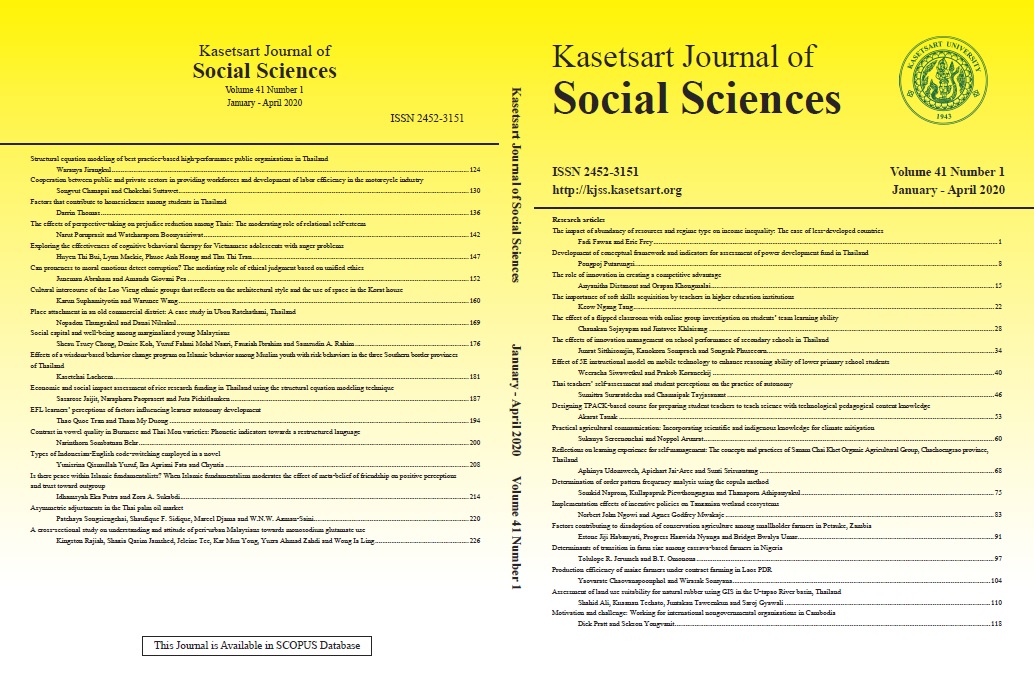Thai teachers’ self-assessment and student perceptions on the practice of autonomy
Keywords:
classroom autonomy, English language teaching, reflective teaching, self-evaluation, student perceptionAbstract
This paper aims to share the classroom observation findings from a study that previously revealed positive beliefs of secondary school teachers and learners in Bangkok regarding various aspects of autonomous learning in the Thai culture of learning. The earlier findings disclosed their beliefs in support of an autonomous learning approach regarding the roles of language teachers and learners, willingness to engage in activities and decision-making relevant to language classroom arrangements both in- and outside the classroom. It is thus worth seeing how these beliefs are translated into practice. This study investigates how teachers self-evaluated their application of autonomous learning in classrooms based on the reflective teaching concept, compared to their students' perception. The sample included 19 teachers and 632 students from 19 secondary schools in Bangkok, who volunteered to complete an evaluation form at the end of the observed lessons. The findings suggest an inconsistency between the teachers’ beliefs and practices. Additionally, they rated their implementation relatively higher than their students. The study sheds light on
how teacher educators and policy makers can further assist in reducing barriers so that the practice of autonomous learning in secondary education in Bangkok and in Thailand may become achievable.
Downloads
Published
How to Cite
Issue
Section
License
Copyright (c) 2018 Kasetsart University

This work is licensed under a Creative Commons Attribution-NonCommercial-NoDerivatives 4.0 International License.
This is an open access article under the CC BY-NC-ND license http://creativecommons.org/licenses/by-nc-nd/4.0/










